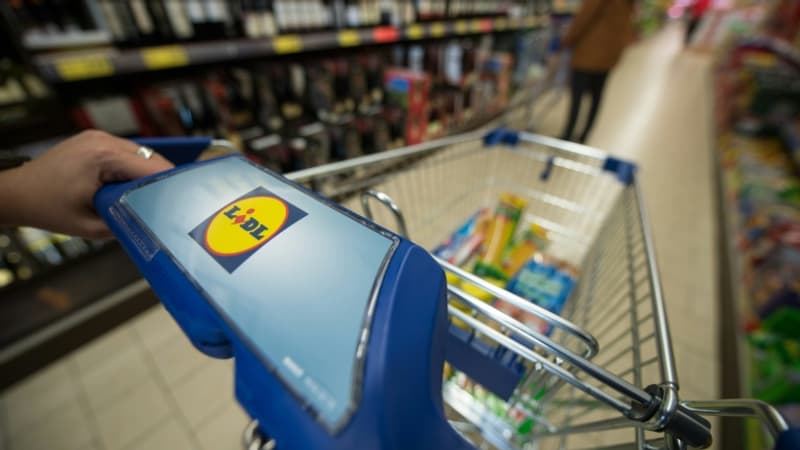Finding your favorite brand of cereal or tea in German supermarkets is no longer easy: faced with price increases imposed by food multinationals, some distributors prefer to leave their shelves empty. A trend that can also be found in France with certain products from the Danone group.
“Dear customers, we regret to inform you that you will not find our supplier’s products.” It is becoming more and more common to come across these types of posters when shopping in Germany.
In question: the refusal of certain brands to pay more for certain products of large agri-food groups, sometimes demanding up to a third increase.
Supermarkets pose as defenders of purchasing power, multinationals advocate rising manufacturing costs, especially energy.
The confrontation between the food giant Mars and REWE and Edeka supermarkets, the two largest German chains, is emblematic.
The two brands have transferred 300 products from the American group, manufacturer of the famous chocolate bars, Twix confectionery or M&M’s but also Ebly cereals, Whiskas or Royal Canin pet food.
legal battle
“Many international brands are trying to take advantage of inflation to charge excessive prices in order to increase their profits,” an Edeka spokesman told AFP, saying Mars’ request “is not justified.”
Mars, in statements to AFP, invokes the “volatile context, under inflationary pressure.”
“The withdrawal of articles is not new, it happens every year, but this time it goes a little less unnoticed, because Edeka and REWE are affected at the same time,” Thomas Roeb, an economics researcher at the University of Bonn, told AFP. – Rhine-Sieg (west).
On the shelves of Edeka stores in Berlin there is a shortage of animal food packaging, a sector dominated by Mars.
Rice supply halved
At a rival store, the rice department’s supply has been cut in half, for the same reasons.
If the absence of the American team is spectacular, it is far from being the only one.
Products from coffee and tea specialist Jacobs Douwe Egberts have disappeared from some stores. Danone products have been removed from the shelves of Aldi and Lidl.
REWE no longer receives cereals from Kellogg’s, because the company rejected a 30% increase requested by the US group, according to the German press.
A legal battle has even broken out between beverage giant Coca-Cola and Edeka, which has asked German courts to force deliveries.
In vain: at the end of September, the Hamburg regional court ruled in favor of Coca-Cola, whose products are gradually leaving the German group’s shelves. A call is expected.
“Hard times”
“Food, drink and even hygiene products are missing,” confirms Leana Kring, 24, when she stands in front of a supermarket near Karl Marx Allee, an emblematic alley in Berlin.
These withdrawals come against an already tense backdrop in Germany: inflation is reaching record highs, rising 10% in September, due to exploding energy costs.
Beyond the defense shown by the consumer, this crisis is an opportunity for supermarkets to promote their private label products.
The margins that supermarkets earn on these cheaper products are much higher.
“Astronomical prices from Mars? So buy Netto,” low-cost retailer Netto Market Discount, a subsidiary of Edeka, recently featured in an Instagram post.
In the REWE supermarket at the Friedrichstrasse station in the heart of Berlin, we can already see that “Ja” cereals, the group’s brand, have replaced the famous Kellogg’s.
Private label products are becoming increasingly popular with Germans, who are looking far and wide to save money.
“It’s cheaper and it tastes the same,” Mirjam Branz, 30, from Berlin, told AFP after shopping.
The participation of these brands in the turnover of the sector thus increased by 1.2 annual points in the first quarter of 2022, according to the GFK institute.
Source: BFM TV


